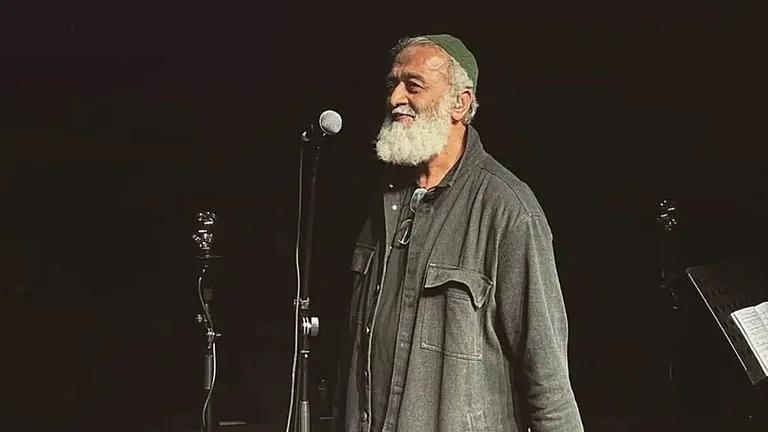THE AIADMK general secretary, J. Jayalalitha, has fired yet another salvo at the precariously balanced BJP-led coalition government at the Centre by demanding the removal of ministers who have been chargesheeted or have first information reports (FIRs) filed against them. She has demanded that there should not be one set of rules for the AIADMK and another set of rules for other political parties who are members of the ruling coalition at the Centre. What applies to Muthiah (who had to resign from the Central ministry after charges were framed against him in a corruption case by a special court in Chennai) should apply to other ministers in similar circumstances, she has asserted.
The BJP has responded by saying that Jayalalitha's demand was 'unjustified'. A senior BJP leader is reported to have said: "There is no comparison between the Ayodhya cases and those relating to corruption charges." He said Ayodhya was a political case and that too was 'baseless'.
A number of important questions arise in this context. What is a 'political' case as opposed to a criminal case? Who is to decide whether a case is baseless? Can an accused person sit in judgement in his own case? If this were to be so, why have courts at all?
Prima facie, four Union ministers come in the category of those who have been chargesheeted or have FIRs filed against them.Buta Singh has been chargesheeted in the notorious Jharkhand Mukti Morcha case, along with former prime minister Narasimha Rao and others. The CBI has filed chargesheets against L.K. Advani, Murli Manohar Joshi and Uma Bharati, among others, in the Babri Masjid demolition case. These three ministers have filed appeals in the Allahabad high court with a prayer for quashing the proceedings against them. These appeals are still pending. The chargesheets filed against the incumbents are under section 120-B read with sections 153A, 155B, 295, 295A and 505 as also under sections 147 and 149, read with section 505 of the IPC.
It is important to note that the solemn assurances given by the BJP to the Union government, the National Integration Council as also the Supreme Court to protect the Babri Masjid were blatantly flouted by the so-called disciplined cadres of that party. The demolition of the Babri Masjid was a culmination of the nationwide campaign for construction of the Ram temple launched by the BJP. The campaign led to communal tensions and violence on an unprecedented scale in several parts of the country.
The chargesheets filed by the CBI are for grave violation in law. In particular, they relate to disturbance of public order, inciting communal violence, desecration of a place of public worship and assertions prejudicial to national integration. Section 120B relates to being party to a criminal conspiracy; 153A pertains to promoting enmity between different groups on grounds of religion, race, place of birth, residence, language, etc, and committing acts prejudicial to maintenance of harmony; section 155B pertains to imputations, assertions prejudicial to national integration; section 295 relates to injuring or defiling a place of worship with intent to insult the religion of any class. Other relevant sections mentioned in the chargesheets are: section 295A (deliberate and malicious acts intended to outrage religious feelings of any class by insulting its religion or religious beliefs); section 505 (statements conducive to public mischief and, inter alia, includes a statement made with intent to incite, or which is likely to incite, any class or community of persons to commit any offence against any other class or community); section 147 (punishment for rioting); and section 149 (every member of unlawful assembly guilty of offence committed in prosecution of common object). It is quite clear that, in the given situation, these grave charges cannot be treated as being politically motivated.
The larger question of criminalisation of politics has become a matter of serious concern in India. It has acquired dimensions which hold frightening prospects for the country and raise doubts about the very survival of a civil society based on the rule of law, not just tolerance but respect for all religions, and democratic governance of the country. It was indeed unfortunate that neither corruption nor criminalisation of politics could hold the interest of the voters as major issues in the Lok Sabha elections in 1998. This was amply borne out from the fact that as many as 27 of the 72 candidates shortlisted from a random sample as unfit to contest, on the basis of some well-defined criteria by an independent panel constituted by Outlook, were elected to the Lok Sabha. All the three BJP Union ministers named above figured in the list of 72 unfit candidates.
If all criminal cases are to be overlooked on the specious plea that they are politically motivated, the very basis for eradication of the malaise of criminalisation of politics will be completely eroded. It is time all political parties accept cleansing of political and social life of the country as an all-important objective. It is also time leaders of all political parties lay down the criteria for judging the fitness of a person for holding political office. L.K. Advani had taken a commendable step by resigning from the 11th Lok Sabha and announcing that he would not contest the elections to Parliament till he was cleared by the courts in the Jain hawala scam. One wonders why, on the same logic, he did not refrain from contesting the Lok Sabha elections in 1998 when the Babri Masjid criminal case of national importance was pending against him? But the times have changed to such an extent that not only did he contest the elections but also accepted the invitation to join the ministry at the Centre as home minister!
A well-known dictum of law is that no one is above the law and governance is not of men but of the rule of law. As the Supreme Court underlined in the case of Manipur Speaker H. Borobabu Singh on February 5, 1993, "We must remind ourselves that the rule of law permits no one to claim to be above the law and it means, 'be you ever so high the law is above you'. It was said long back, 'to seek to be wiser than the laws is forbidden by the law.'" It is unfortunate that these eternal values have lost their significance in the governance of a civilised society in India.
(The writer is a former Union home secretary.)






















